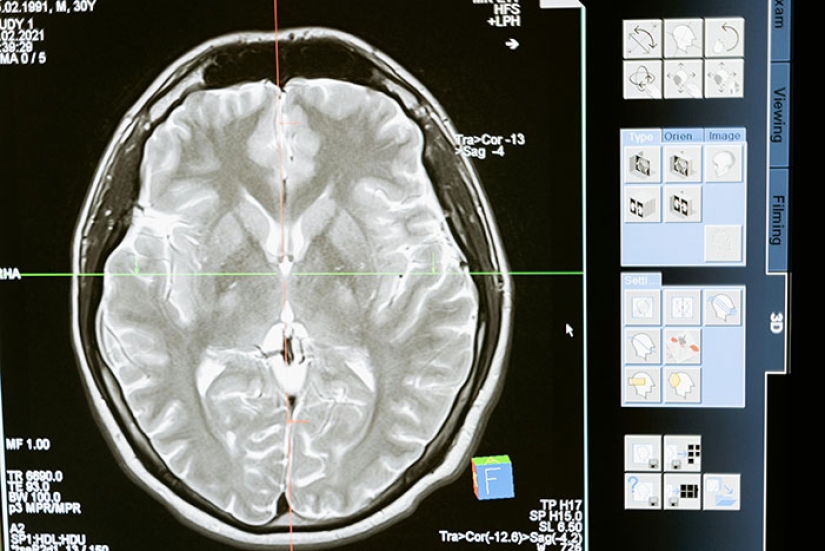10 Of The Scariest Science Facts People Don’t Seem To Know
Categories: Nature | People | Psychology | Science | Society | Technology | World
By Vika https://pictolic.com/article/10-of-the-scariest-science-facts-people-dont-seem-to-know.htmlScience can be fascinating and fun. We love to learn new facts about our planet and beyond, like the fact that hippos sweat sunscreen. But it can also be pretty scary at times. I try not to think about the effect microplastics have on our health or how many times BP has spilled oil into our oceans. There's nothing fun about these kinds of facts.
Perhaps a similar thought brought about the curiosity of this Redditor. Instead of fishing for some fun science facts, the user u/DogeStonks69 asked others, "What's the scariest science fact that the public knows nothing about?" And boy, did the commenters deliver. Be prepared to possibly face some existential dread after going through these entries.
10 PHOTOS

#1
Scientists were trying to study the effects that microplastics have on the human body and brain but were unable to draw any reasonable conclusions because they **could not find a control group.**.

#2
The greatest chemical contributor to IQ loss and violent behaviour is Lead and it's still in millions of people's piping.

#3
Brain aneurysms can happen at any time, to anyone. No matter what age you are, or even how healthy you are, if you are currently alive, you have a chance of getting a brain aneurysm. When you do get one, there's a 50 % chance you'll just die immediately. Like, you'd be alive one minute, and then lying on the floor unconscious the next minute. Are the chances of actually getting a brain aneurysm at any random moment low? Yes, but it's still not 0.
Let's dissect some of these scary facts. Like the microplastic one. Why are there no control groups to test its effects on? The problem with microplastics is that they're everywhere: in the water, in the earth, and in the air. But what's more concerning is that it is in living tissues, too.
The fact that there are nano and microplastics in our blood, placenta, heart, liver, and bowels alone is enough to scare us. But that's also the reason why scientists can't properly study its effects – there is no place (even in the human body) where they are not present, so we can no longer make comparisons.
What are the potential dangers of having microplastics in our organs? They may make us more susceptible to cancer, heart disease, kidney disease, and Alzheimer's disease, and they might even affect our fertility. There is a study where researchers found that microplastics in the brain might correlate with autism-like traits in mice.

#4
Only my grandma and I know how handsome I am.

#5
Scientific litterature conclusion on alzheimer's disease and other neurodegenerative diseases in general is that the diseases start decades before the first obvious symptoms and that we need to treat them at this stage. When you exhibit obvious symptoms, it's too late, your brain is already mush.
If you get diagnosed with Alzheimer's at 65, you had the disease since your early 40s at least. And you experienced very mild symptoms but didn't notice it. And your brain fought like hell to compensate for the deficit. When you get diagnosed, your brain is already very severely damaged and will never recover from the deficit.

#6
I'm sure there are plenty of people who know this, but personally, I find it terrifying af.
If the vacuum of space didn't block sound from reaching us, the sun would be as loud as a jackhammer *everywhere* on Earth. Everywhere, at all times. And because sound travels slower than light, if the sun were to go out it would take eight minutes for the light to stop but 13 years for the sound to stop. So life on a cold, dead Earth for 13 years and still heard the jackhammer scream of our dead sun.
Declining insect population rates are also bad news for us. We often think of insects as nuisances: annoying flies, bloodsuckering mosquitoes, and disgusting roaches. But the reality is that insects, no matter how gross, are extremely important to ecosystems.
Reuters reports that a 2020 study found how Earth has lost 5% to 10% of its insect populations in the last 150 years. That's between 250,000 and 500,000 species total. Another study found that we're losing insect populations at a rate of 1% to 2% per year.
Which species are the most affected? Out of the gross ones, only the beetles, including dung beetles. The insects that have the worst numbers are bees, moths and butterflies, aquatic insects, and those insects that eat other insects, like certain species of ladybugs and ants.

#7
Swimming in freshwater could expose you to Naegleria fowleri — a brain-eating amoeba** that is fatal 97% of the time, and is almost impossible to treat effectively.

#8
In Yellowknife, NT Canada, there was a gold mine operating for 54 years, and a byproduct of that mining process was arsenic trioxide... 237,000 tonnes of it, enough to give a death sentence to everything on the planet. They figured the best thing to do was to bury it in permafrost. The problem is, that it's starting to get warmer, so they have to figure out what to do with it. It's not a secret. Just no one is talking about it.

#9
We know that there is a strong connection between pregnant mothers having viruses such as the flu during pregnancy and schizophrenia. It will be interesting what we see in 15 years post-COVID.
So, what's causing the poor guys to become extinct? Besides the abundance of pesticides, climate change is a big factor. It causes temperature changes and alters seasonal timing.
As temperatures rise, insects may no longer have cooler environments to migrate to. Droughts reduce food availability, and heavy rainfall might even drown them. Extreme weather events might be dangerous directly or destroy their habitats.

#10
Alcohol increases the permeability of the blood-brain barrier by unpredictable factors, which is why people die from overdose on their normal d**g dosages.
Keywords: Scariest Science Fact | Scariest facts | Science | People | Facts | Interesting facts
Post News ArticleRecent articles

It's high time to admit that this whole hipster idea has gone too far. The concept has become so popular that even restaurants have ...

There is a perception that people only use 10% of their brain potential. But the heroes of our review, apparently, found a way to ...
Related articles

Have you heard of such a phenomenon as the doorway effect? Let's put it simply: have you ever walked into a room and immediately ...

The question of what space smells like may not be considered topical, but, you must agree, it would be interesting to find out. It ...

One night in 1971, in the American city of Cleveland, Ohio, a historic event occurred. Lying on the surgical table, the small, ...

New Year's is a time to surprise and delight loved ones not only with gifts but also with a unique presentation of the holiday ...